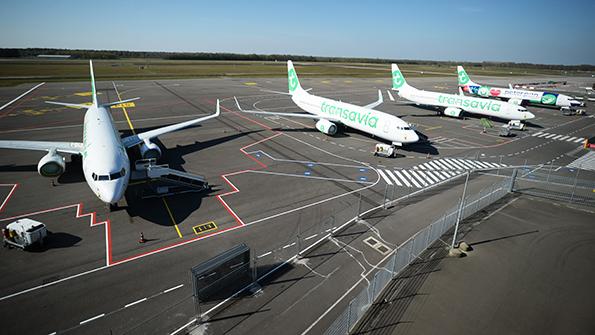「アフターコロナ」におけるMROマーケット回復の道筋

今後のMRO(Maintenance・Repair・Overhaul)マーケットがどうなるかを正確に予測することは、コロナ危機の影響により2020年末の予測ですら難しい。とはいえ、直近の指標や事実からそのヒントを探ることはできる。
業界が資金不足に陥った今、大型統合はもはや起きない。ボーイング社とエンブラエル社、Hexcel社とWoodward社の統合はともに中止された。しかし、「ワンストップ工場」のコンセプトが消え去ることはないため、MRO業界が統合する流れは今後も続くはずだ。
そして、保管状態に置かれている機数は、おそらく今がピークに近いだろう。Aviation Week NetworkのFleet Discoveryからのデータによれば、16,000機近くが地上保管されており、約3,500機が駐機/待機(7日間のうち1~2日飛行している)状態にある。エアバスA320とボーイング737がその内9,300機を占めており、現在のところCFM56エンジンが他のどのエンジンよりも 多く保管されていることになる。
また、フライト数の削減で旅客便による貨物輸送量が減少していることから、一時的にキャビンへの貨物搭載を可能とするための改修が行われるようになった。HAECO Cabin Solutions社などでは、座席の上や隙間への貨物搭載を可能にする製品の開発や、パレット貨物搭載のための座席取り外し作業を行っている。
航空旅行はV字回復というよりは、ゆっくりと低いペースで回復するとみられている。これは、全ての機材やエンジンが再び運航に戻るとは限らないことを意味している。航空会社・リース会社ともに、どの機材やエンジンにより残す価値があるかを検討しており、解体される機材も増えるだろう。これは、今後も使用可能な中古部品が増えることにつながる。
とはいえ、渡航制限が緩和されるまでの間、業界は人から部品に至るまで、あらゆる面でロジスティクスの問題に悩まされるだろう。
一例を挙げると、リース会社に返却されるはずだった機材の一部は、渡航制限と検疫の影響で動けずにいる。このため、必要な整備と書類へのサインを行うために、リース会社が現地業者を手配することを強いられている。Vedder Price社のパートナー・ Bill Gibson 氏は「このような遅延は、次に予定されていたリースの履行不能を招き、契約中止に至らせるリスクを生み出している」と語っている。
一方で、明るいニュースもある。航空会社とアフターマーケット業界の助けになっているのが、リモート業務を可能にするコラボレーションツールだ。4月22日に開催された、MROをテーマにしたAviation Weekのオンラインセミナーでは、67%の参加者がコロナ危機以前にこのようなツールの使用を検討し、19%が今回を機に使用するようになったと答えている。
これらのツールや、AAR社が推進しているような手法は、MRO業界の効率化に寄与している。
各社が資金を温存する方策を採っていることは理解できる。しかし、こういう時だからこそ、自社のビジネスの基本に立ち返り、顧客のニーズや期待に応え、「アフターコロナ」に向けた体制を整えておく必要がある。なぜなら、マーケットは回復するからだ。それは、これまでとは違った形になり、回復まで数年かかるかもしれないが、マーケットは必ず回復する。
以上は、Lee Ann ShayがInside MRO誌いた記事です。 Inside MRO誌は、民間航空機MROセクターの最新のトレンドとテクノロジーを調査しています。毎月の各号には、重要なテクノロジー、ビジネス、および運用上の意思決定に必要な情報が記載されています。さらに、加入者は月に1回発行されるAviation Week&Space Technologyを受け取ることができます。Inside MRO誌をもっと知りたい場合、こちらをクリックして下さい。
While accurately predicting what the MRO market will look like, even at the end of this year, is tricky due to the COVID-19 pandemic, these recent figures and facts could hint at what it will be.
Big mergers during these cash-crunch days are not happening: Boeing and Embraer, as well as Hexcel and Woodward, both called off their planned deals. However, the one-stop-shop concept isn’t going away, so MRO consolidation will continue.
The number of parked aircraft is probably at or near its peak. Aviation Week Network’s Fleet Discovery data shows nearly 16,000 aircraft are parked and about 3,500 are in parked/reserve status (flying 1-2 days during a 7-day period). Airbus A320s and Boeing 737s comprise 9,300 of that total, meaning that more CFM56s are parked than any other engine type by far.
A decrease in aircraft belly freight due to fewer flights is leading to new opportunities for cabin modifications as airlines temporarily carry freight in their cabins. Companies such as HAECO Cabin Solutions are designing products to place freight on or between seats, or removing seats to make room for a “palletized” unit on the floor.
Airline travel will most likely recover at a slow, gradual rate, rather than a V-shaped spike. That means not all of the aircraft and engines will return. As airlines and lessors determine whether their aircraft and engine assets are worth more remaining whole or as pieces, teardowns will increase. This will lead to more used serviceable material.
Until travel restrictions ease, however, the industry faces all sorts of logistics problems—from people to parts.
For instance, lessors’ scheduled returns are being held up because of travel restrictions and quarantines. They need to find local resources to perform maintenance, inspect the aircraft and sign the required documents. “This delay creates the risk that a long-stop date in the next lease with a follow-on operator is passed, and the follow-on lease is terminated,” says Bill Gibson, a partner at Vedder Price.
On the bright side, one thing that is helping airlines and aftermarket companies through this crisis is remote collaboration tools. During an Aviation Week webinar April 22 on MRO compliance, 67% of participants said they had looked into remote collaboration tools before the COVID-19 crisis and 19% said they had done so since.
These tools and others—such as what AAR is piloting—will make the MRO industry more efficient.
Companies are understandably trying to preserve their cash, but in these times it is important to focus on your business fundamentals so your company will meet customer needs and expectations and be positioned for the future post-COVID-19—because the market will recover. It will look different and it might take a few years, but it will rebound.